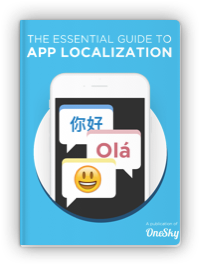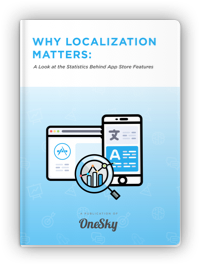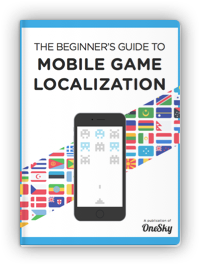Translation Service Agreement: 3 Reasons Why You Need One
When you form a new business relationship, it’s usually expected that some paperwork will be involved. Even if you don’t want to sign a formal contract, having an agreement in place ensures you have something to fall back on if cooperation breaks down.
A translation service agreement is designed to provide this kind of assurance for your business, and for any translator you hire. Many top companies use them nowadays. The question is, do you need one?
In this post, we’re going to look at the key benefits of signing a translation service agreement, and why you probably shouldn’t begin localization without one.
What Is a Translation Service Agreement?
A translation service agreement is a form of contract that defines the working relationship between a business and a translation service provider.
Agreements of this kind usually cover compensation, payment terms, and deliverables. They may also cover:
- Turnaround times and delivery formats
- Protocols for confidential information
- Expectations around quality and the ownership of translated content
- Indemnification (and who pays the attorneys’ fees in the case of liability)
- Routes of arbitration
Translation service agreements can be used for any type of translation project. However, they are most valuable when you expect to have ongoing work for your chosen translation provider — regular blog posts or app content updates, for instance.
Note that the terms of individual tasks can still be agreed upon. The purpose of a translation service agreement is to set baseline expectations for future jobs.
With this in mind, a good translation service agreement should be thorough, but not overly specific. If possible, the terms of each job should not overlap with the agreement — rather, they should sit on top.
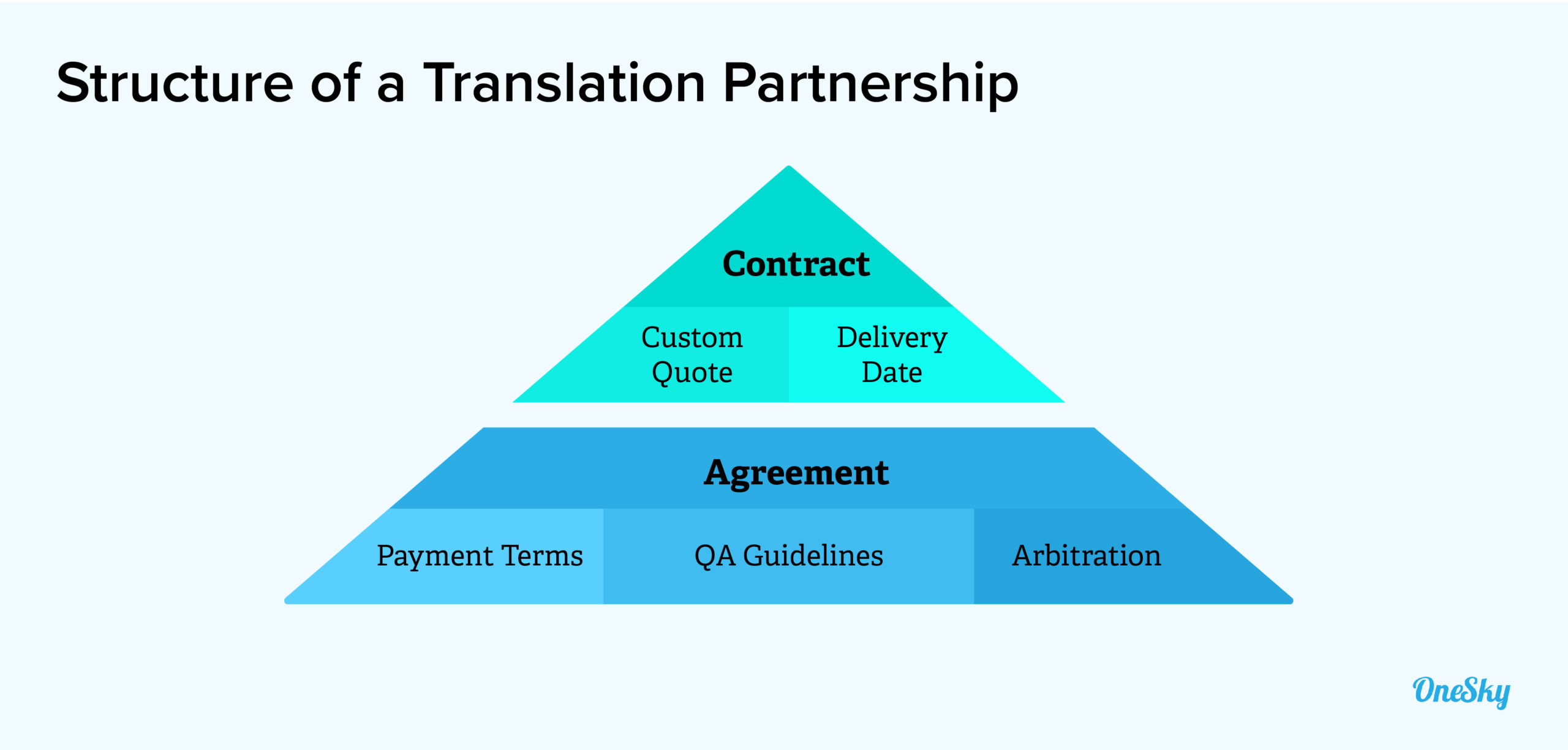
Why You Need a Translation Service Agreement
In many respects, the benefits of a translation service agreement are comparable with those of any other contract. However, there are some specific reasons why you should consider signing this type of agreement. Here are three of the most important ones:
Reason 1: Get Exactly What You Pay for
If you’re planning to hire a translation service for the first time, you might think that all translation is the same. In fact, that couldn’t be further from the truth.
You see, language service providers can do the translation in many different ways. Some rely on machine translation alone, while others pay professional translators to oversee the process.
Just to add to the confusion, “professional translators” can be regular joes who speak two languages fluently. If you need high-quality results, you will probably need to stipulate that you want only certified translators to work on your projects.
Other variables include subject matter expertise, experience in a particular field of translation, and processes for quality assurance.
By signing a translation service agreement, you can specify exactly what you want — and demand that level of service in exchange for full payment. Even putting aside arguments and legal action, simply creating such an agreement sets expectations.
Of course, this works both ways. An agreement gives your translation provider some clear benchmarks, and they have the opportunity to state clearly what they are willing to provide. By signing the agreement, both parties have some level of security.
Reason 2: Protect Your Rights, Indemnify Your Business
It’s amazing how an apparently simple business partnership can break down out of nowhere.
We don’t want to get overly negative here, but having some sort of protection is always a smart play in business. You just never know when your chosen partner is going to fall short.
For example, you might want your translation provider to work on content that is not for public release. By inserting a non-disclosure clause within your agreement, you reinforce the requirement to maintain confidentiality for such information. If your provider chooses to break the agreement, you will have some recourse.
Similarly, you might want to specify who holds the copyright for any translated content. Does it belong to the business that created the source content, or to the company that produced the translated version? Your agreement is the ideal place to spell this out.
Your translation service agreement can also cover the topic of liability. Say you have a page on your website giving legal advice, and you want it to be translated. If your provider does a good job, there should be no problem here.
But imagine they made a mistake and someone took the erroneous advice, to their detriment. Who would be responsible?
In your agreement, either party can choose to indemnify themselves from certain liabilities. This is a particularly important point in medical and legal translation, where even one word out of turn could have serious consequences.
Tax Liability
On a completely different note — hiring independent contractors and subcontractors on a regular basis can draw unwanted attention from tax authorities.
Defining the relationship with your translation partner in clear terms can help you prove that you’re working to a contract, not hiring employees via the back door.
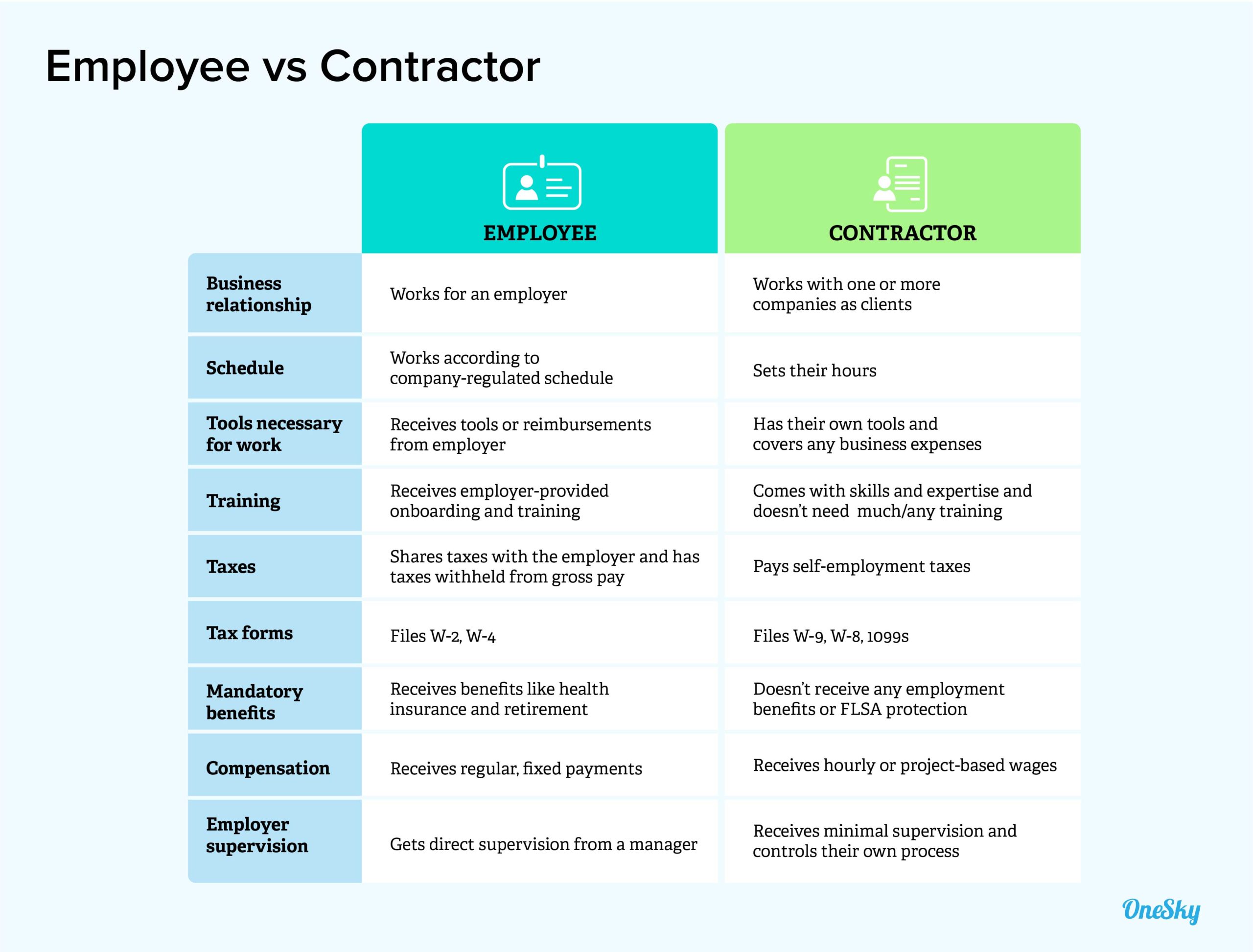
Reason 3: Stamp Out Squabbles Over Payment
In any line of business, the most common forms of disagreement all relate to payment. Either there is an argument over the price that was agreed, or there is a debate over terms of payment, and just occasionally, the hiring company tries to avoid the issue of money altogether.
When we talk about translation work, the price of each job should be stated clearly within individual contracts. You might insert a payment date in that document, as well.
But with a translation service agreement, you have the opportunity to standardize key points like method of payment, who pays processing fees, and terms around late payment.
Further to the points on liabilities, you can also use a translation service agreement to confirm that the individuals you are hiring are entirely responsible for their own income tax. This reinforces that such contractors are not employees, even if they work for you on a frequent or regular basis.
While you could put many of these conditions in standalone contracts, both parties would end up with quite a reading list for every individual job. This is why it makes sense to consolidate details that don’t usually change, within a single agreement.
How to Build a Successful Translation Partnership
If you are planning to build an international presence, nurturing a partnership with your chosen translation provider is really important.
The company you choose will have the huge responsibility of accurately representing your brand in other languages. It only takes one mistranslated word to tarnish your reputation — so you really need to pick a provider you trust.
Creating a translation service agreement is only one small step in building a partnership. The process starts with selecting the right translation provider.
Then, you need to establish expectations and build strong lines of communication. Translation is a collaborative process, so you need to provide constructive feedback, and your translation partner needs to take those comments on board.
You can learn more about adapting your business for foreign markets by downloading our free ebook, The Beginner’s Guide To Minimum Viable Localization (MVL).
Make Translation and Localization Easier With OneSky
If you’re looking for a translation service provider with experience of building strong partnerships, OneSky should be on your shortlist.
Our team of 1,000 hand-picked translators and localization experts have worked successfully with brands like Airbnb, BMW, and Microsoft on websites, apps, and games.
Our end-to-end platform allows you to communicate directly with your assigned translators, and our process is completely transparent. The same platform can also help you with implementing translations, with features like our API, and translation memory.
What’s more, our services start at just $0.04 per word.
Sounds good? Sign up for a free account today to give it a try!

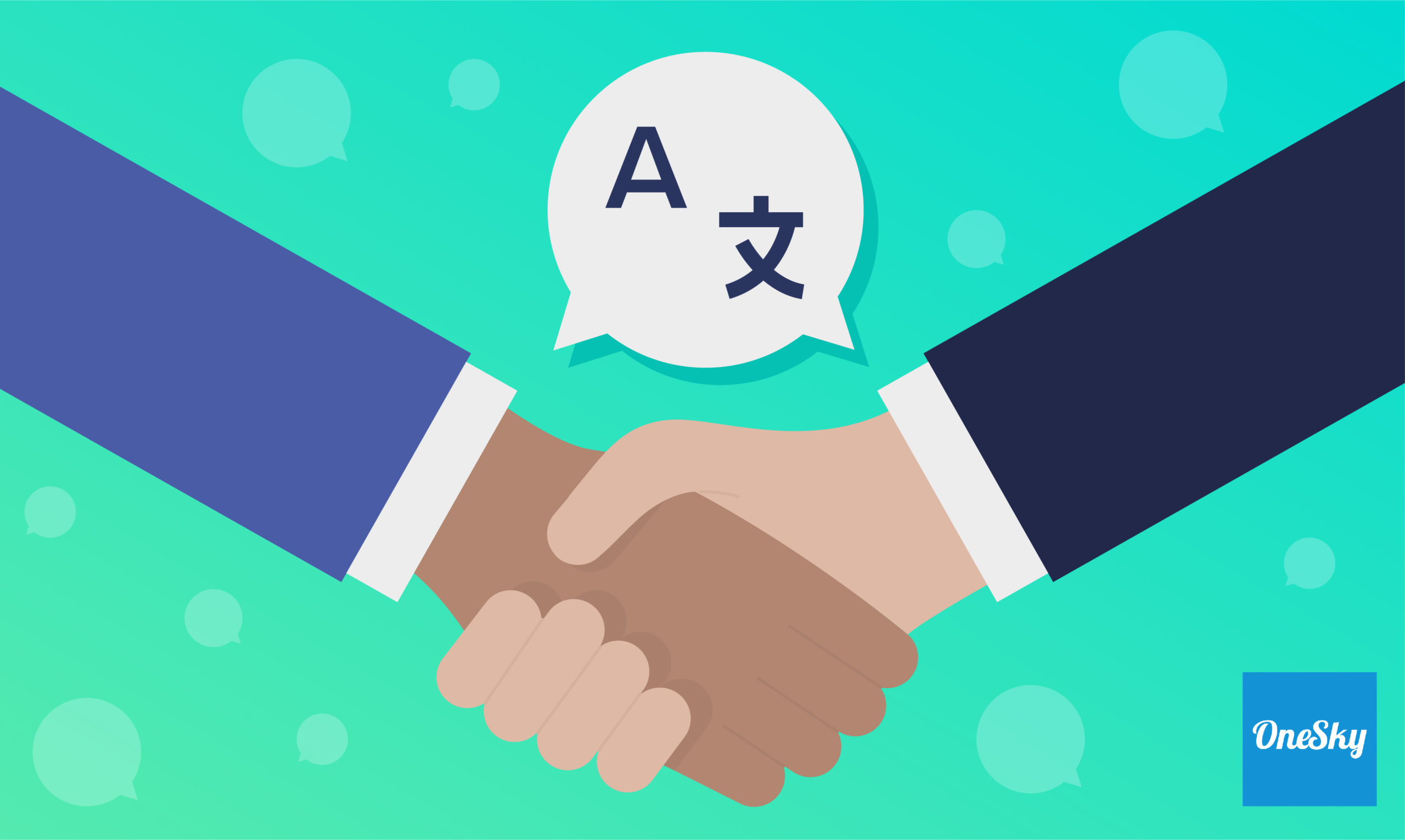
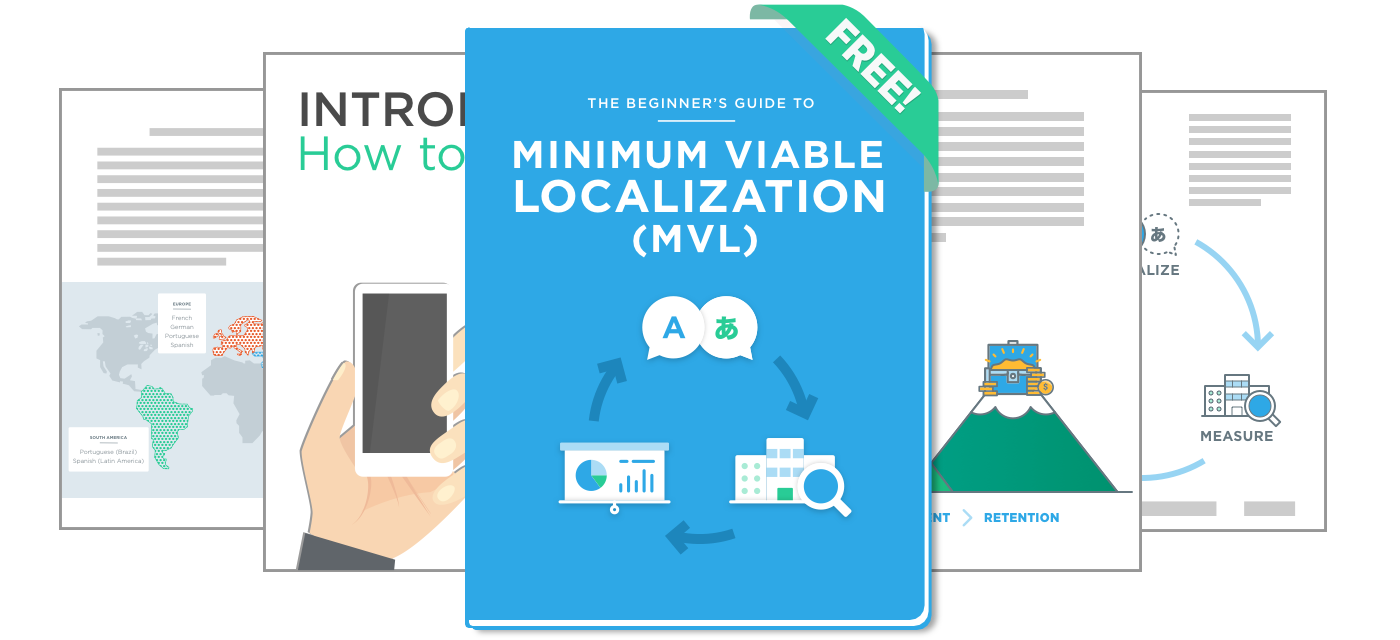

 Written by -
Written by - 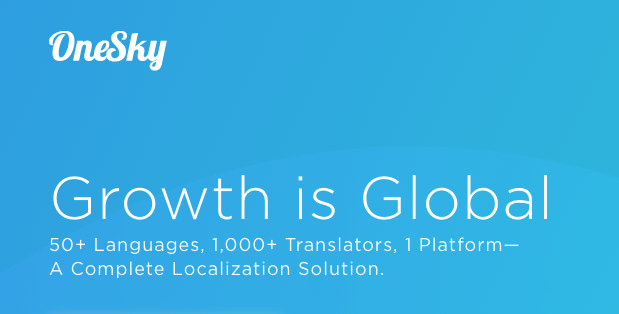

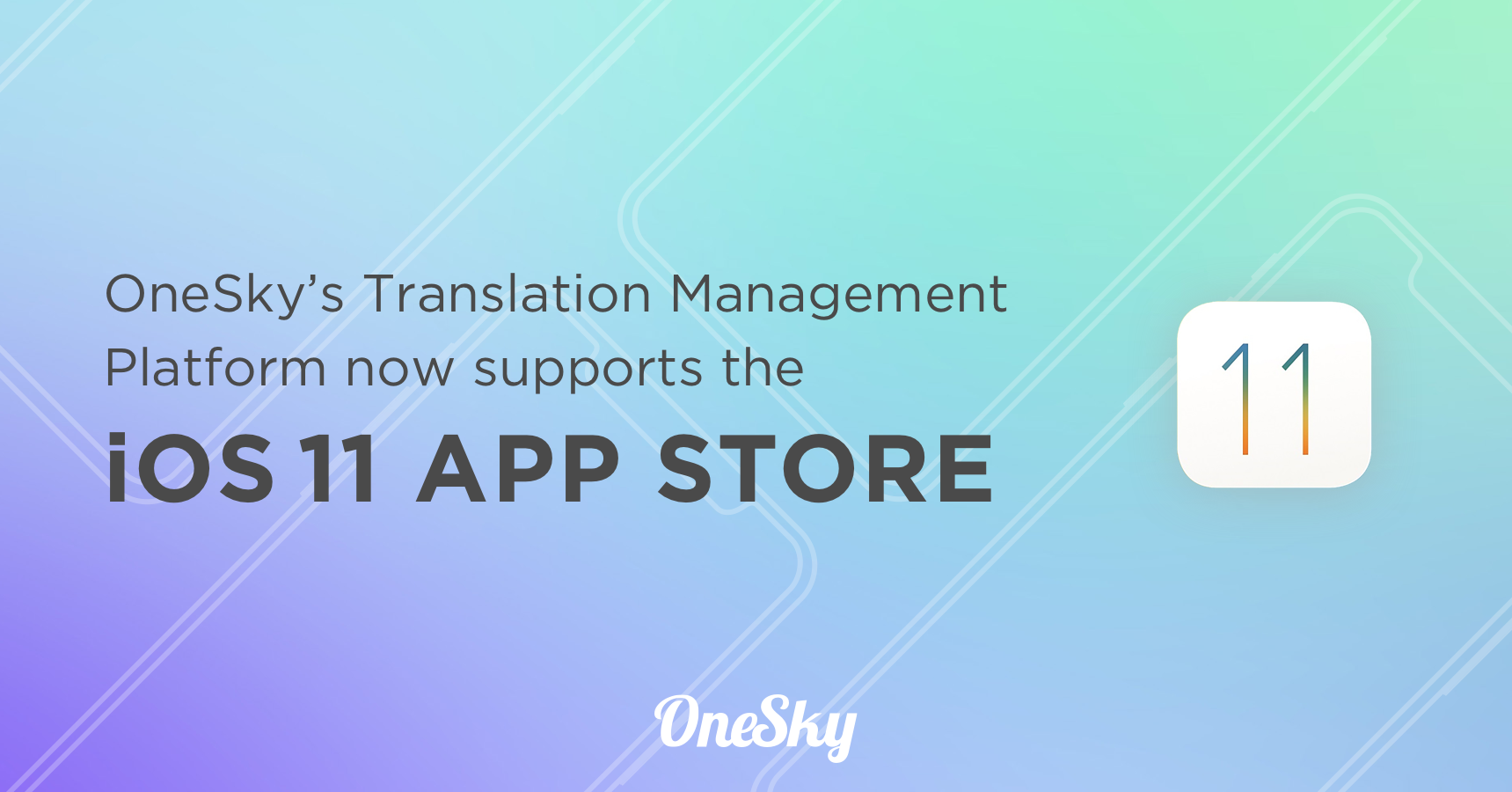
 Written by
Written by 
